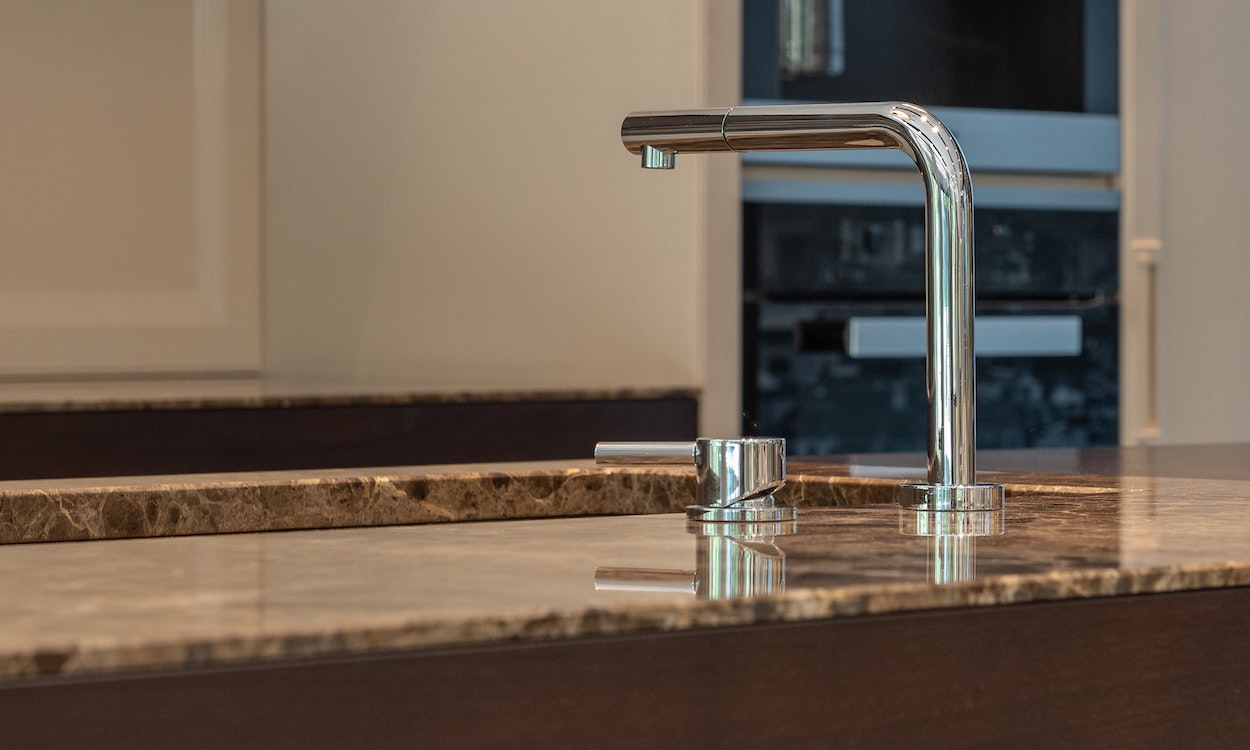Are Instant Hot Water Taps Energy Efficient?

As the pace of life accelerates and our kitchens become ever more central to our homes, innovative appliances like instant hot water taps have emerged to enhance our daily routines.
Offering a supply of boiling water at the flick of a lever, these taps are not only time savers, but they also add a dash of modern style to any kitchen.
However, while the appeal of instant hot water is undeniable, an important question arises when considering such an appliance - how energy-efficient are they?
In this blog post, we will look into the world of instant hot water taps, evaluating their energy efficiency and the impact they can have on your energy usage, and by extension, your utility bills.
- Related Post: Are Boiling Water Taps Eco Friendly?
Are Instant Hot Water Taps Energy Efficient?
The energy efficiency of instant hot water taps can be quite variable, largely depending on the specific model and how it's used.
However, many modern instant hot water taps are designed with energy efficiency in mind.
These taps work by maintaining a tank of hot water at a near-boiling temperature, so it's ready for immediate use.
This might suggest that they would use a lot of energy, but in reality, a well-insulated tank can hold water at a high temperature quite efficiently.
Most modern designs are equipped with highly efficient insulation that minimises heat loss, meaning they use less energy to keep the water hot.
Some models also have energy-saving features like an "eco" mode that reduces the temperature when the tap isn't in use for a prolonged period, such as overnight.
However, the efficiency also depends on how you use the tap.
If you're frequently drawing small amounts of hot water – for example, to make a cup of tea – an instant hot water tap could be more energy-efficient than boiling a kettle, especially an overfilled one.
That's because you're only heating the amount of water you need, rather than boiling a larger quantity only to let it cool down unused.
On the other hand, if you're only using the tap infrequently, the energy used to keep the water hot might outweigh the benefits of instant boiling water.
- Related Post: Can You Have A Boiling Water Tap With A Ceramic Sink?
Do Boiling Water Taps Save Money?
The question of whether boiling water taps save money is subjective and largely depends on your personal habits and usage.
From a strictly energy use perspective, boiling water taps can be more energy-efficient than a kettle if you frequently require small amounts of boiling water.
A typical kettle often leads to wastage since people tend to boil more water than they need, which is not the case with instant hot water taps.
In terms of water usage, a boiling water tap can reduce wastage by providing the exact amount of hot water you need, rather than filling and boiling a kettle for just one cup of tea, for example.
However, you also have to factor in the initial investment and running costs, including electricity consumption and the possible need for regular filter replacements.
The upfront cost of boiling water taps is considerably higher than that of a regular kettle, and these appliances do use electricity to keep water hot at all times.
So, whether a boiling water tap will save you money in the long run depends on your specific usage patterns and the local cost of electricity.
If you tend to boil more water than you use, or if you value the convenience and time saved by instant boiling water, you may find that a boiling water tap is a worthwhile investment.
Click here to view our range of Instant Boiling Water Taps for sale.
Is A Boiling Water Tap More Efficient Than A Kettle?
The efficiency of a boiling water tap compared to a kettle depends on several factors such as usage, power ratings, and individual behaviours.
However, in general, boiling water taps can be more energy-efficient than kettles for several reasons:
- Amount of Water Heated: People often boil more water than they need in a kettle, which wastes energy. In contrast, boiling water taps dispense just the right amount of water you need, reducing unnecessary energy consumption.
- Heat Retention: Boiling water taps come with thermally insulated tanks, ensuring minimal heat loss. This means once the water is heated, it retains its temperature for a long time with minimal energy use, compared to a kettle which cools down rapidly after boiling.
- Frequency of Use: If you frequently need small amounts of boiling water throughout the day, a boiling water tap can be more energy-efficient. Heating small quantities of water several times in a kettle can consume more energy.
- Standby Power Consumption: Modern boiling water taps are designed to be energy-efficient even when on standby. While kettles consume zero energy when not in use, the minimal standby power consumption of an efficient boiling water tap can be outweighed by the energy saved during operation.
- Savings over Time: While the initial cost of a boiling water tap is higher than a kettle, the energy efficiency can lead to savings in electricity costs over time.
Remember, the actual energy consumption and efficiency can vary based on specific models and usage patterns.
Always consider these factors and choose the option that best suits your needs and habits.
Thoughts from a Professional in the Kitchen Fitting and Manufacturing Industry
As a seasoned kitchen fitter and manufacturer, I've had a front-row seat to the evolution of kitchen appliances and features over the years.
One of the most significant innovations that have gained considerable popularity is the instant boiling water tap.
Not only does it streamline kitchen operations with its convenience and speed, but it also presents an opportunity for energy efficiency that shouldn't be overlooked.
Instant hot water taps operate by having a small, thermally insulated tank under the sink.
This tank heats up a finite amount of water to near boiling point and keeps it at this temperature ready for use.
As a result, these taps deliver hot water much faster than a traditional kettle or a stove, consuming less energy in the process.
The idea of constantly heated water might raise questions about energy efficiency, but these concerns are mitigated by the sophisticated design of these taps.
The thermal insulation of the tank ensures minimal heat loss, which means the tap does not need to expend excessive energy to keep the water hot. This design makes these taps far more energy-efficient than you might initially believe.
As an expert kitchen fitter and manufacturer, I can say in my opinion that they are a worthy consideration for any modern kitchen, blending functionality, cost-effectiveness, and sustainability.
Final Notes On Instant Hot Water Taps Energy Efficiency
Now that we've looked into the energy efficiency of instant hot water taps, it's clear that these modern appliances offer more than just convenience and style.
They can also contribute to reducing our energy consumption, which not only has potential cost-saving benefits but also helps us reduce our carbon footprint and make our kitchens more sustainable.
While the initial cost of these taps can be higher than traditional taps or kettles, the long-term benefits often outweigh these upfront costs.
It's important to remember that an energy-efficient kitchen isn't just about the appliances we choose, but also how we use them.
Conserving water, using appliances effectively, and regular maintenance are all crucial aspects of an efficient and eco-friendly kitchen.
In a world where we are increasingly aware of the importance of sustainability, understanding the running costs and efficiency of our appliances is essential.
Instant hot water taps, with their potential for reducing energy waste and providing daily convenience, make a strong case for their place in the modern kitchen.
Whether you're planning a kitchen renovation or just looking to make your existing setup more energy-efficient, we hope this guide has given you valuable insights into the efficiency of instant hot water taps.
After all, a kitchen that balances style, functionality, and sustainability is a kitchen that truly feels like the heart of the home.
Remember, the actual energy consumption and efficiency can vary based on specific models and usage patterns.
Always consider these factors and choose the option that best suits your needs and habits.
The efficiency of your kitchen appliances is not just about their ratings but also how you use them.

